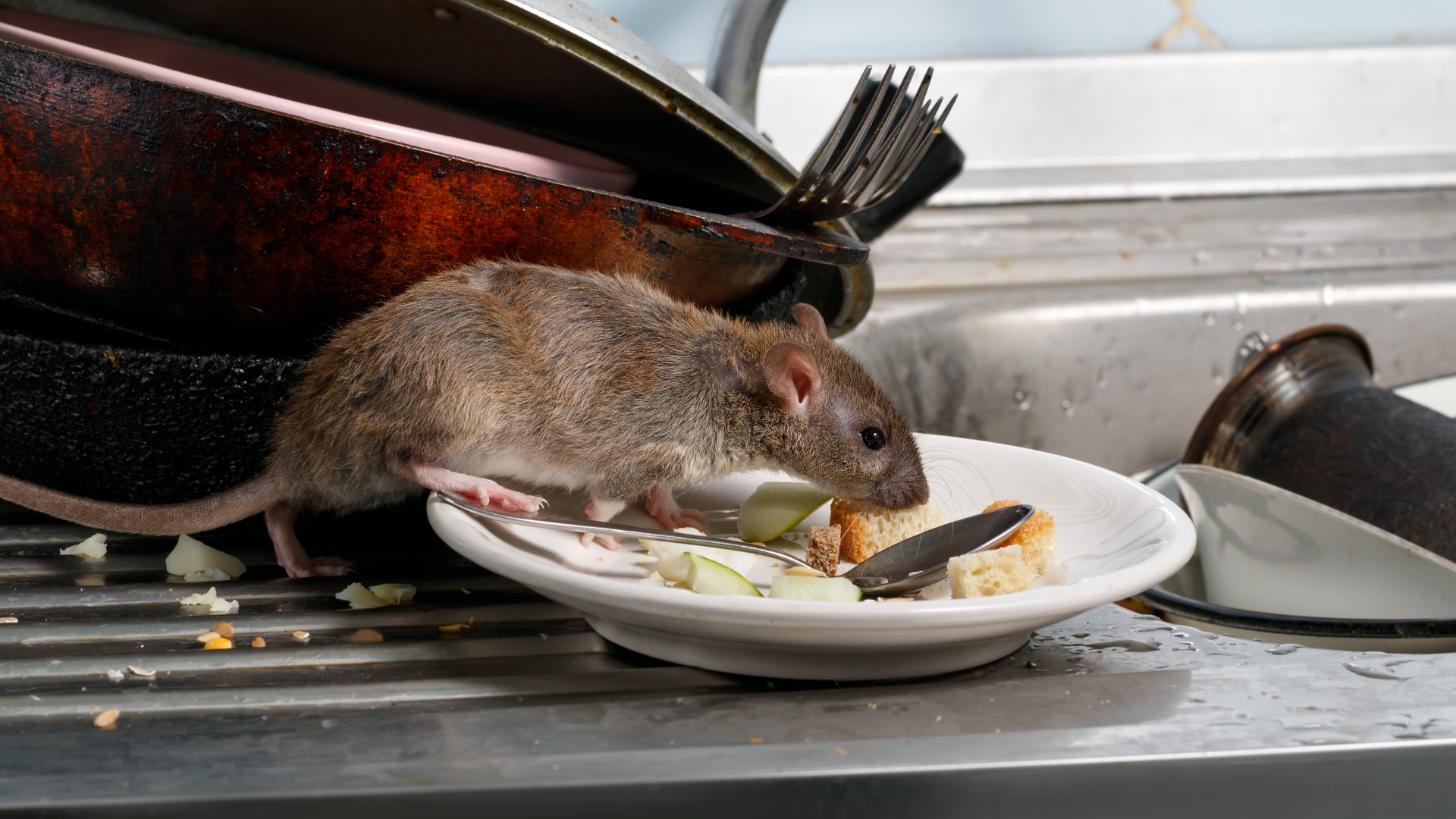Rodents are considered the largest species of mammals and one of its most destructive. Since rodent teeth continuously grow, they always need something to chew on.
If you find holes in wires, drywall, cardboard, or paper goods, there is a pretty good chance you have a rodent infestation on your hands.
No matter what type of rodent you have in your Baltimore home or surrounding area–whether it’s a mouse, squirrel, or gopher–there are some rodent prevention tips you can use to eliminate rodents from your property entirely.
 Common Rodents & Problems They Cause
Common Rodents & Problems They Cause
There are several types of rodents across North America and the Northeast, including:
- Mice: These little rodents may appear cute in children’s books but are not adorable in real life. Sporting colors gray, brown, and white-colored tummies, mice are prolific breeders and can squeeze into tiny areas. Mice can carry up to 35 different diseases, including salmonellosis and rat-bite fever, and they can trigger asthma or allergy symptoms. Mice can also chew insulation, wall trim, furniture, and wood inside homes and businesses.
- Rats: These furry beasts have long, skinny tails and can carry several diseases, including the bubonic plague, rat-bite fever, typhus, jaundice, salmonellosis, and trichinosis. Rats will also chew wires, piping, and even concrete.
- Squirrels: Seemingly benign, these fluffy-tailed pests can sometimes make their way indoors to spread disease and cause structural damage. It’s common to find squirrels chewing wire, insulation, and framing members inside your attic.
Other rodents, such as gophers, beavers, porcupines, and guinea pigs, don’t tend to infest homes and are typically under the purview of animal control services. Nevertheless, these rodent prevention tips should work well to keep these rodents off of your property.
10 Rodent Prevention Tips
When creating a plan to combat rodents, remember that rodents are attracted to these three things: food, water, and warmth. You can prevent rodents from ever entering your home by eliminating food and water sources and sealing off any entrances.
1. Clean:
Declutter and stick to a regular cleaning routine. Stow food in canisters that seal tightly. Keep garbage in an outside receptacle with a lid that stays in place. Wipe counters, sweep floors, and mop promptly in the kitchen and dining room once eating and meal prep are completed. Wash dishes immediately after eating.
2. Set Down Mouse Traps:
Mouse traps and bait stations are highly effective at killing mice and rats already in your home. Set down traps at the first sign of an infestation, as this can control the spread. Most baits work slowly, spreading poison among a rat’s nest to kill more rats before they can multiply.
3. Keep Pet Areas In Check:
Rodents love pet food and pet waste, so store pet foods in plastic or metal containers that lock shut. Continuously pick up and dispose of pet waste promptly inside and outside.
4. Maintain Chimneys:
Another route rodents can take indoors is through a chimney or even an attic. Install a chimney cap to prevent access and ensure rodents don’t have access to your roof via a low-hanging tree branch.
5. Attack Cracks:
Inspect for any possible structural entry points. Pay special attention to doorways, windows, main levels, basements, and crawl spaces. Seal any cracks or gaps with a silicone-based caulk and use spray foam around large openings, such as pipe entries.
6. Trim Greenery:
Rodents can take advantage of overgrown limbs cascading from trees, shrubs, and hedges; they run up the main part of the plant and onto the limb, then hop onto your home. Prevent such events from occurring by keeping limbs cut at manageable lengths and cutting your grass regularly.
7. Declutter:
Minimize clutter by removing junk mail, old magazines, newspapers, paper bags, cardboard, and unused items. These materials are a choice of fodder for rodent nests.
8. Seal Trash Cans:
Rats and other pests can break through thin garbage bags and ransack your trash if you’re not careful. Be sure to seal up trash cans regularly and take your trash to the curb weekly.
9. Use Herbs and Essential Oils:
Herbs like mint and basil and essential oils like peppermint have been shown to repel most major pests, including rodents.
10. Use a Natural Predator:
Finally, consider investing in a cat that can help keep rats away. These natural predators tend to keep rodents away without killing them, as their urine contains a special pheromone that most rodents tend to avoid.
Contact a Rodent Control Expert
When all else fails, it is the right time to call an exterminator for mice. Be sure to call an exterminator specializing in rodent control.
At Pest Czar, we offer residential pest control services that help eliminate rodents quickly and offer helpful tools and advice to keep them away for good.
Our home maintenance plans also naturally repel rodents, as our frequent inspections help prepare your home against pests and can spot pests before they multiply.
FAQs
What naturally repels rodents?
Strong scents like peppermint, cayenne pepper, cloves, citronella, and mothballs will keep rodents away naturally.
Does baking soda kill rats?
Baking soda causes a chemical reaction that causes their insides to rupture. While not the most effective treatment, baking soda can be applied to traps and baits for added effectiveness.
Do dryer sheets repel mice?
No, dryer sheets do not keep mice away.

